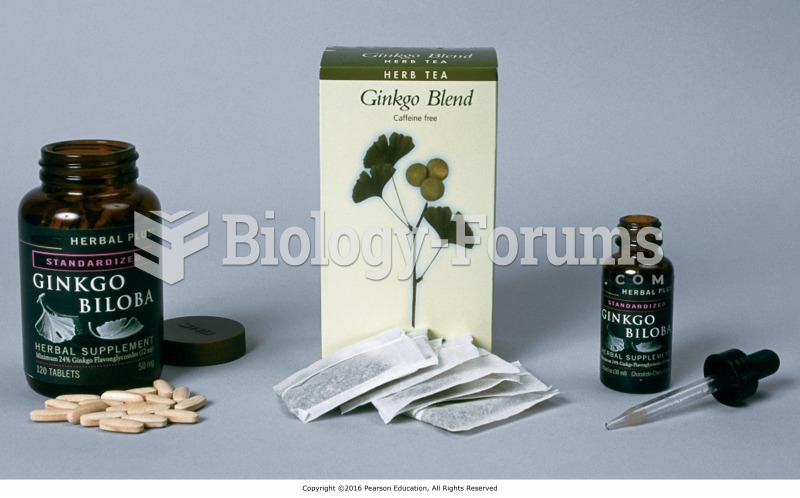|
|
|
More than 150,000 Americans killed by cardiovascular disease are younger than the age of 65 years.
Carbamazepine can interfere with the results of home pregnancy tests. If you are taking carbamazepine, do not try to test for pregnancy at home.
Aspirin is the most widely used drug in the world. It has even been recognized as such by the Guinness Book of World Records.
Glaucoma is a leading cause of blindness. As of yet, there is no cure. Everyone is at risk, and there may be no warning signs. It is six to eight times more common in African Americans than in whites. The best and most effective way to detect glaucoma is to receive a dilated eye examination.
About 80% of major fungal systemic infections are due to Candida albicans. Another form, Candida peritonitis, occurs most often in postoperative patients. A rare disease, Candida meningitis, may follow leukemia, kidney transplant, other immunosuppressed factors, or when suffering from Candida septicemia.
 Nurses may collaborate with social workers, physicians, and other members of the health care team to
Nurses may collaborate with social workers, physicians, and other members of the health care team to
 The tone of the nurse-patient introduction sets the stage for the patient interview and patient care
The tone of the nurse-patient introduction sets the stage for the patient interview and patient care





